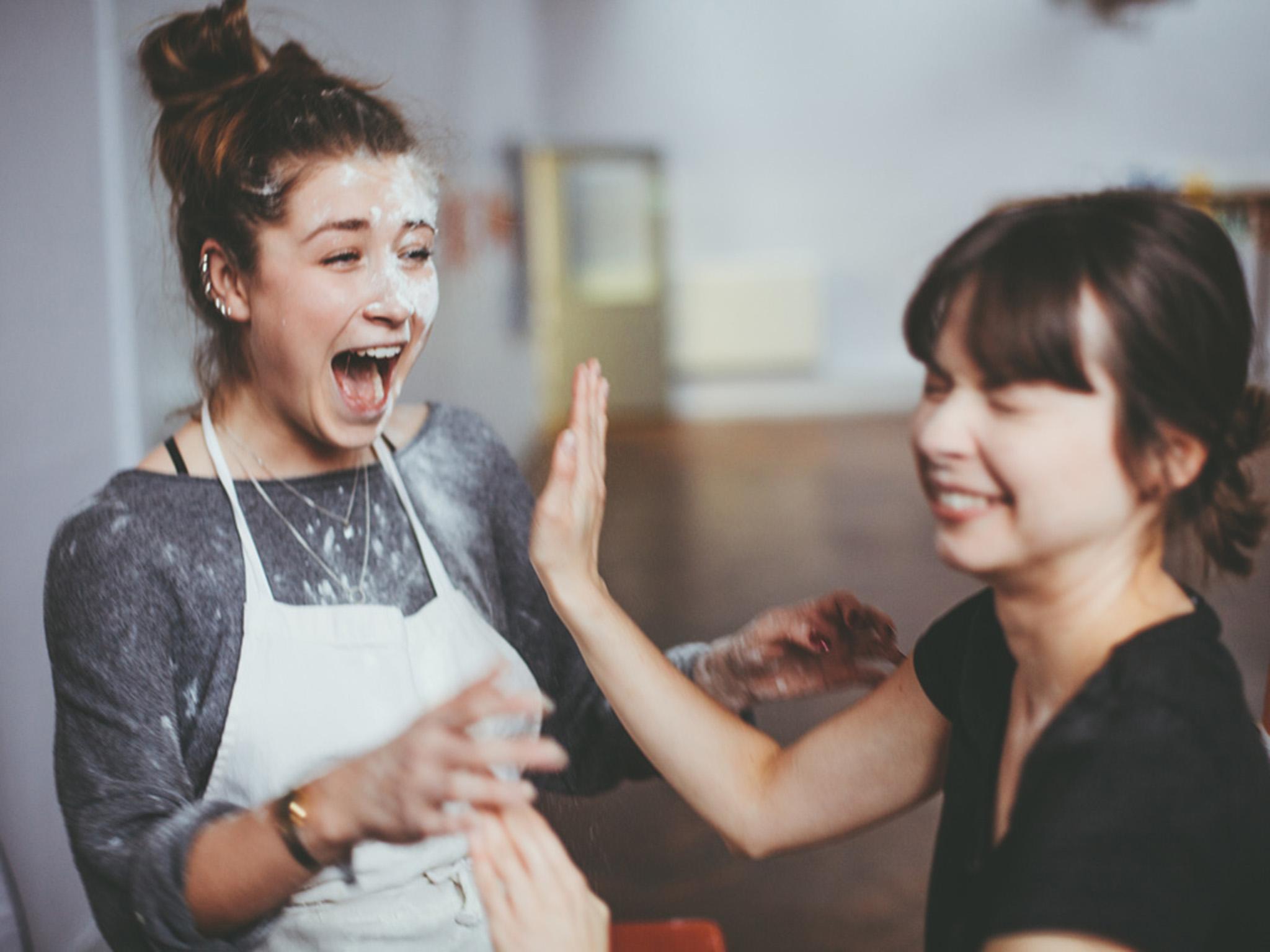Luminary Bakery
UK programmes are offering dispossessed women a second chance

Baking requires trust. It’s a belief that your hands can transform simple ingredients – flour, sugar, butter – into something much greater than the sum of its parts. It’s an act of faith when you close the oven door, confident that a bit of magic will happen and something delicious will emerge that makes someone smile.
Trust – the kind needed for baking – is in short supply when a new batch of trainees first walk through the doors of Luminary Bakery. The bakery, a social enterprise located in London’s Stoke Newington, helps women, who are homeless, have been in the prison system, victims of domestic violence, or in the sex trade, learn how to bake.
The bakery got its start at Kahaila Café on Brick Lane, but in 2016 it got its own bricks-and-mortar home, thanks in part to a donation from the London Evening Standard Dispossessed Fund. In addition to the training programme, Luminary runs a wholesale bakery supplying tray bakes, cakes, cookies and biscuits to restaurants, cafes and bars. Now the goal is to open its own retail café on site this spring.
The women enter the six-month training programme with no baking knowledge and leave with the skills to get a job. “Trusting people is initially quite difficult,” says Alice Boyle, co-founder of the Luminary Bakery. “They have their guard up. They don’t want to trust the support workers. They don’t want to support the other people in their team They don’t want to trust the bakers. And often they don’t feel like they can trust themselves to produce something really well or even to commit to being here every week.”
Boyle says that many trainees suffer from anxiety, panic attacks or severely low self-esteem. She tells the story of when they showed a trainee the loaf of bread she’d baked. “When the loaf came out of the oven, we brought it to her and said, ’This one is yours.’ She looked at it, ‘No, it’s not.’ And we said, ‘Yes, it is. It has your name on the tin.’ And it just looked so perfect. She burst into tears and said, ‘I can’t believe I did that.’ And it’s a moment like that when she slowly but surely realised she can do it.”
Luminary Bakery graduate Tina understands that feeling all too well. She never baked growing up. “We weren’t allowed to cook or do anything and if I did I would have been mocked.” Her confidence was so low that she almost didn’t show up on the first day. “That’s half the battle, confidence, isn’t it?” Tina says. “The last two years have been very difficult. I’ve been homeless. I was living in a park. I was squatting. If she (Alice) hadn’t come that Summer to the hostel where I was living I wouldn’t be in a good place.”
“There are so many women – hundreds of thousands – who have experienced these things so we’re never going to address all those things and all those people,” Boyle says. “But what we’re doing is helping a few people well, so they’re completely supported. What’s really exciting is to see them then help others.”
After graduation, Tina went on to a training programme at the Centre for Better Health in Hackney, where she studied how to make sourdough bread. Now she’s back at Luminary as a teacher, sharing her passion for sourdough and starters with the latest group of students. The hope is that like Tina, everyone who graduates will find work whether it’s in baking or another field, such as a recent graduate who is pursuing a degree in psychology and comes back to help trainees prepare to enter the workforce.
“Its not just baking skills,” says Boyle. “We also help them learn life skills like how to manage money, how to manage their emotions and how to get on well at work with your colleagues.” Luminary also launched an enterprise course that helps budding culinary entrepreneurs get the support they need to launch their own food businesses.

“The people in the hostel, we do want a purpose, somewhere to go and feel like you can do something,” says Tina. “If you put us with the rest of the people applying for a job, we’re not going to get there because we don’t have that confidence, we haven’t worked for a while. And we do need someone who is slightly more caring and understanding. If there were more places like this that help you up, we’d get more people into work.”
National Baking Week: Ready, steady, book a break
Show all 4“The transformation is massive and that’s all down to Alice. We need more people like her, don’t we?” Tina adds. I ask her what she’d like to do in the future. She’s reticent and says she doesn’t like to think about the future too much. For now, she’s happy to be working, out of the hostel, and living in a flat, reunited with her cat. But then she pauses before she says smiling, “Maybe one day I’ll be wealthy and I can make Luminary Bakeries everywhere.”
Subscribe to Independent Premium to bookmark this article
Want to bookmark your favourite articles and stories to read or reference later? Start your Independent Premium subscription today.



Join our commenting forum
Join thought-provoking conversations, follow other Independent readers and see their replies
Comments